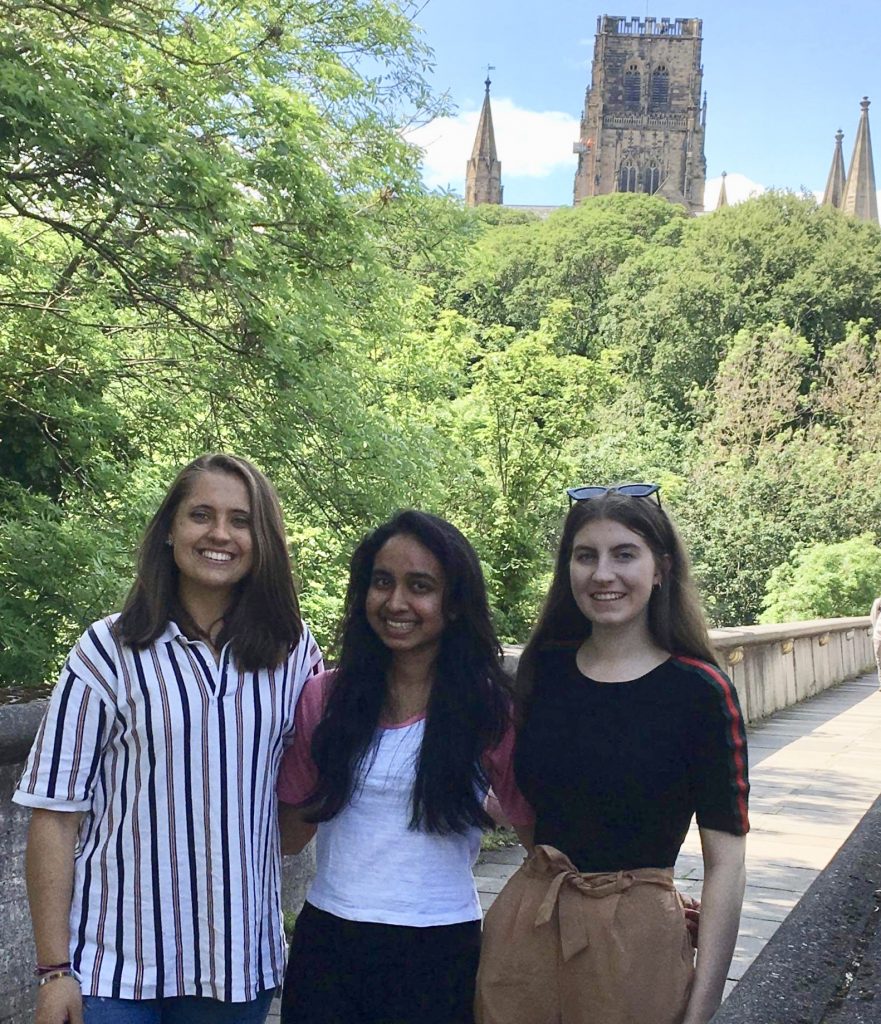by Elizabeth Cunningham, Priyanka Vanama-Rathna and Julia Dowden
This year, the Matariki Global Citizenship Forum will focus on ‘Empowering Learners’. However, the term ‘Empowering Learners’ is quite broad, different individuals have varied perceptions- it could be viewed from a more personal perspective as well as from a wider academic and organisational perspective. This article reflects the three sub-categories of ‘Empowering Learners’ that we will focus on in this year’s forum, i.e. student well-being, wider student experience, and academically (through education and students’ unions).
Empowering Learners: The Three Categories
Wider student experience
With Durham University’s vision to improve global wealth and well-being by facilitating wider student experience, we believe Durham has been able to expand a student’s university experience via having a number of student-led societies through the Students Union and Experience Durham encompassing volunteering, music, theatre and sport. One of the first steps which would enable empowering students is by providing the platform for students to engage, communicate and exchange ideas with one another. The best form of learning occurs when one takes charge of their growth (personal and professional) in terms of development of knowledge through choice, reflection and communication. Durham on a more personal level has been able to provide a safe environment to voice views, spread humanity and respect for one another whilst achieving one’s own objectives. Learning should be a collaborative process rather than a selfish motive and once this is highlighted it would encourage deeper understanding by helping one another as the best way to learn and understand is by teaching or explaining concepts to peers. There is a huge potential for discussions in this theme as different universities have their own unique way of promoting student experience and thereby learning which need not necessarily be connected to one’s degree.
Education and students’ unions
The term ’empowering learners’ as representing an intersection between responsibility, support, and evolution achieved through education and which relies on a strong student and academic support network. As global citizens with a commitment to supporting others, we should seek to make educational experiences representative and egalitarian, complemented by solid pastoral support in a relational network of actors, with a focus on student unions.
Looking at our home institution and experiences of females with university, we believe there is a particular need to encourage and empower women by celebrating their success and acknowledge their contributions to the student body. In the context of female empowerment and representation both in education and the wider community, a greater recognition and support for young women in particular is needed, which focuses on acknowledging success in its own right, free from fear of judgement or abuse and removing the veil of self-deprecating excuses or embarrassment. This is achieved through the culmination of responsibility to support each other to instil confidence in young women, which groups committed to representation and diversity, such as student unions, strive to do. While the work currently being undertaken in student unions across the country should be commended, there is still room for improvement and growth, a topic which could inform discussions at the Matariki Global Citizenship Forum.
There are many more interpretations and sub-categories to the term ’empowering learners’ and, indeed, many more interesting discussion topics that could be included and explored within the aforementioned three categories. Through this forum we strive to have meaningful discussions and come up with means to empower learners within our universities’ and the wider community.
We are very excited to welcome and have interesting discussions at the Global Citizenship Forum 2019 and collaborate with our partners for a better world.

Elizabeth Cunningham (left) is a second year Psychology student at Josephine Butler College. Priyanka Vanama-Rathna (middle) is a second year Finance student at John Snow College. Julia Dowden (right) is a first year Geography student at St. Mary’s College.
They are Durham University’s delegates for the this year’s Forum.

